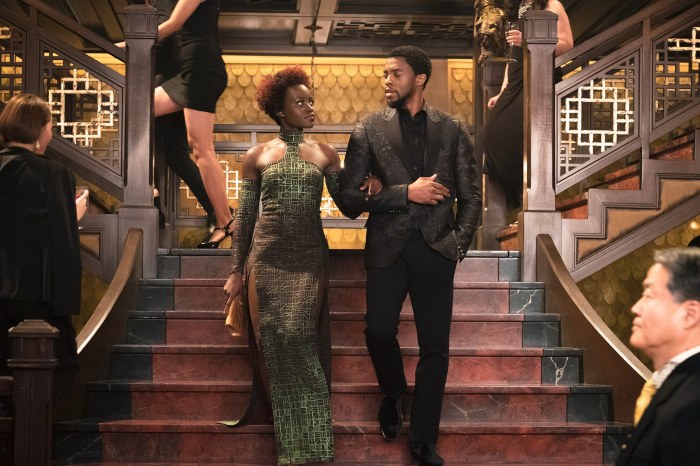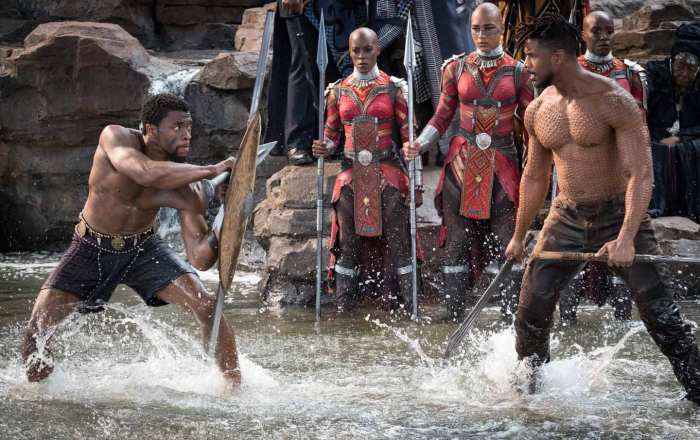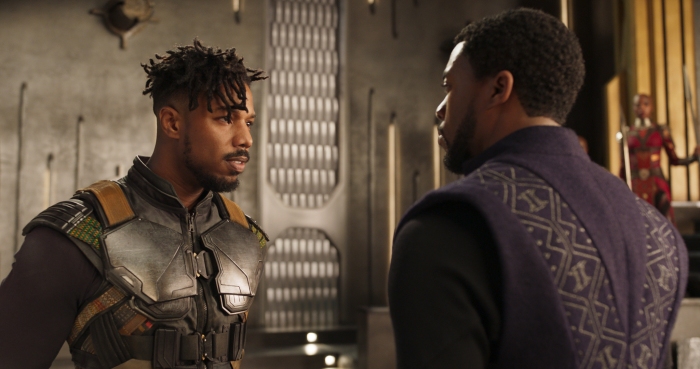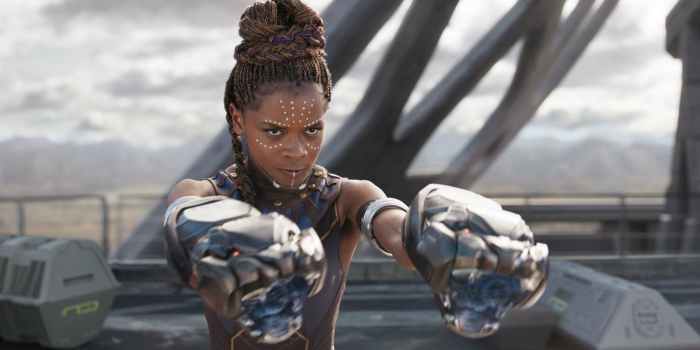This past weekend, I managed to make it out to see Jordan Peele’s latest buzzy thought-provoking horror film, Us. With maybe the toughest act to follow in Get Out – arguably one of the more influential and unique films in recent years – Peele and his Monkeypaw Productions company have come through in spades, delivering a sophomore effort that bucks the standard slump trend, and if anything pushes the limits of what he can do within the horror genre to previously unknowable heights. Given the film’s sterling box office performance on its opening weekend (reportedly $70 million, the best opening for an original film since James Cameron’s 2009 gangbuster Avatar), you’re sure to hear it discussed this week and beyond, but you can read on for my spoiler-free takes if you’re interested in them.

If you wanna get crazy, we can get crazy!
It’s worth noting right off the top that Us is both written and directed in a way that’s nothing short of fantastic. Jordan Peele is, simply put, a generational talent, and has cemented himself as such with another unique and well-crafted blend of suspense, humor, disaster, and even art film elements. Us delivers a similar brand of subtext to Get Out that at times is both more heavy-handed and slightly harder to parse, but its similarly profound devotion to its social causes and its deeper moral could only be otherwise described as complete, ranging in expression from its plot devices to its (warning – spoilers in this link) repeated numerology right down to the symbolic use of Luniz’s “I Got 5 On It” (that classic hip-hop song that gets a spooky remix in the film’s trailer – yes, I do believe that its lyrics, which seemingly, as Us’s Zora claims, are only “about drugs,” have some less prosaic meaning in this context that points towards the idea of literally sharing souls). Any societal messages that the film spends time trying to send are only amplified by the fact that Us is surprisingly funny, even when considering the fact that Peele (who no doubt is still known just as much for his comedic resume as for his newfound penchant for highbrow horror) is its creator – after all, satire and comedy are hardly new mechanics for effective delivery of such whispered missives.
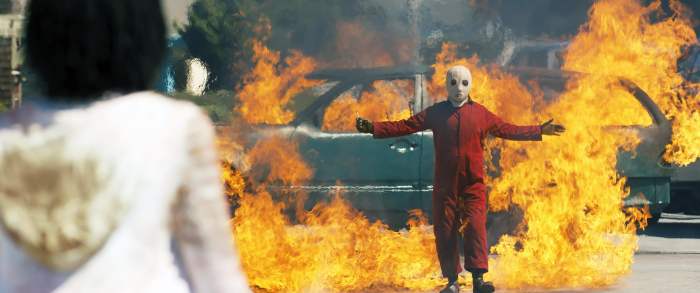
This will probably be a pretty popular Halloween costume this year, and rightfully so.
With all that said, maybe Us’s greatest strength is its prescience in terms of when it’s OK to stop working so hard on subverting a genre (which it of course does left and right) and instead embrace some of that very genre’s classical timeworn elements – namely, the ones that work. One of the more memorable scenes in the film – second only to the climactic one, which I’ll refrain from divulging many details about here – is the first scene that pits our protagonist family against its antagonistic doppelgangers, which is chock full of horror film tropes that are each more than likely one misstep away from not playing as well as they did. When they’re combined, though, and when the confluence of a shadowy many-windowed cabin in a remote stretch of woods and a notably peculiar band of besiegers is executed so flawlessly, they play well indeed. Peele’s love of the genre shows itself onscreen more clearly in these moments than elsewhere, and his reported list of homework assignments for his cast is indicative of his commitment to the suspense-drenched language he wanted the film to speak. This language is also evocatively spoken by Us‘s abundance of traditional but undeniably creepy settings: a carnival, complete with a funhouse brimming with mirrors. The aforementioned cabin in the woods. A dark road. Others that I won’t spoil.
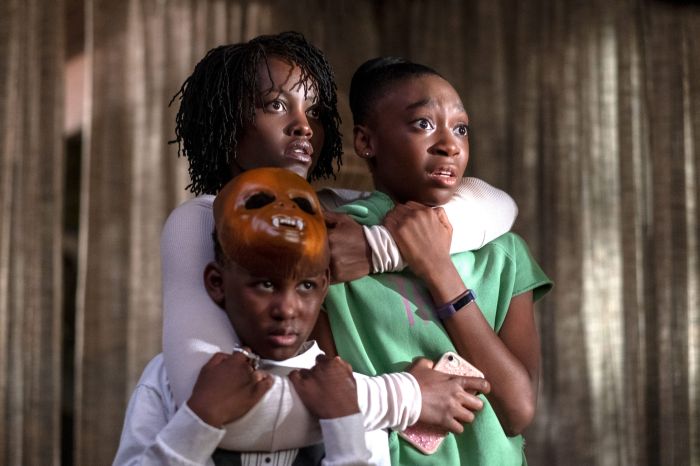
Seriously – that whole wall behind them is basically windows – not really what you want in a slasher survival situation.
In general, the entire cast of Us, from its younger newcomers up to its seasoned veterans, is phenomenal, with its centerpiece, Lupita Nyong’o, essentially carrying the film on her shoulders for significant stretches. Joining her in a less weighty but at times equally pivotal role is Winston Duke, playing perhaps the most dad dad of all time (sidenote: based on the brand of humor Duke’s character more often employs, it’s clear that Jordan Peele is suited for fatherhood), with Elisabeth Moss and Tim Heidecker also signing on to provide a seeming foil of alcoholic extravagance to the central family’s more reserved method of vacationing. The mayhem that the cast of characters is made to endure in Us is faithfully rendered by its players, who deftly shift between the pockmarks of humor that the action occasionally demands and the sense of dread imposed by the film’s premise. While Peele’s creative influence is second to none when it comes to Us‘s triumph, the importance of the cast also can’t be understated.

Haunting.
Jordan Peele and all others responsible for Us’s creation are currently basking in the warm light of success, and it’s light that’s well-deserved. As a fan of film, and in particular as a filmgoer who respects the challenges of putting an original idea onscreen (a set of challenges being eschewed more and more frequently by Hollywood’s proverbial board of directors in favor of existing IP), I can only hope that other filmmakers ranging in experience from fledgling to behemoth will learn something from the long list of accomplishments and accolades that Us will no doubt lay before itself in the coming year and awards season. If only to witness a masterclass in building and releasing dramatic tension, Us should be viewed promptly by anyone who can stomach some gore and thematic anxiety. If you’ve already seen Us, and are instead merely looking for more of the same brand of chills, Peele’s Twilight Zone reboot is right around the corner.
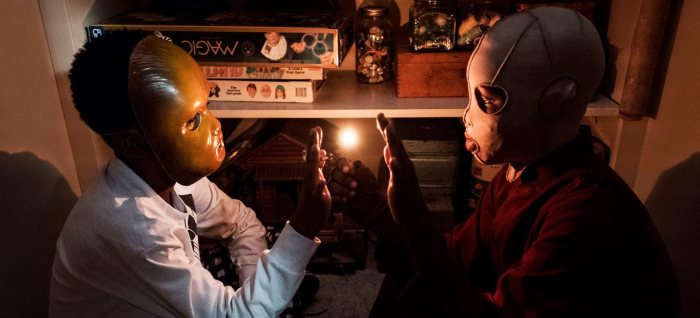
Us – giving a whole new creepy meaning to classic romantic “palm against palm” gesture.
Author’s/Grumpy Old Man’s Note: While I currently lack the imaginary column inches (read: the time) to talk about this to the extent that I’d like, Us was also a somewhat illuminating experience in terms of the shortcomings of theatergoing, and in particular attending a film on its premiere weekend where a large crowd is present. In the wake of that experience, which had its share of frustrating moments, there’s likely more to be said about what I at times have perceived as an assault on the sanctity of the movie theater ambience, specifically when it comes to the horror genre. To be clear, it’s hard for me to draw a clear-cut line in the sand here, as audience interaction can be half the fun at times, and some of my best theater experiences (this one as well) have included exultant cheers in the inspiring moments, and laugh tracks during the comedic ones. Parts of the movie theater endeavor no doubt yearn, or even demand, to be made communal, but other parts – the parts where full-volume conversations are happening in the theater amidst a scene with soft-spoken dialogue, for example – certainly aren’t. It’s difficulties like these that leave me wondering if I had been better off watching Us – a film that in itself really doesn’t beg a big-screen viewing – in the potentially eerie darkness of my own home, and it’s the future likelihood of such events that draws pause when I consider my plans for the Endgame.
